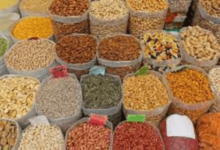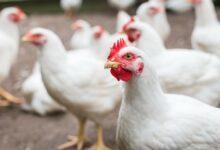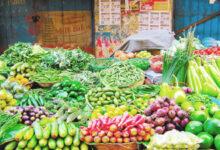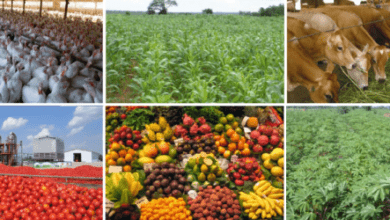How to Start Vegetable Farming in Nigeria
In this post, I will show you how to start vegetable farming in Nigeria. Here you will see things you need and the process to get started.
Recently in Nigeria, there has been food shortage as the population keeps increasing. Food production has quite increased also, but it has not been able to meet up with the number of people.
👉 Relocate to Canada Today!
Live, Study and Work in Canada. No Payment is Required! Hurry Now click here to Apply >> Immigrate to CanadaHence, more people are encouraged to go into farming as it can also be a profitable business. When making healthy food choices; foods rich in vitamins and minerals, with great health benefits, vegetable is top on the list.
Read Also: Problems And Prospects Of Onion Farming In Nigeria
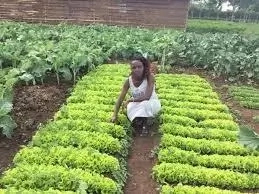
Mostly, when we talk of vegetables, the first thing that comes to one’s mind is leafy greens but in actual fact, vegetables come in different shapes and sizes (examples include: lettuce, onion, cucumber, fluted pumpkin, water melon, potato, carrot, etc).
Read Also: Top 10 cultivated crops in Assiga, Yakurr local government
Overview of vegetable farming in Nigeria
Vegetable farming is the growing of vegetables primarily for consumption. It can be small scale farming or large scale.
Small scale because some people cultivate home gardens where they grow crops solely for themselves while others cultivate on a large scale for the purpose of making money.
Vegetables are highly sort after in this part of the world as most of our Nigerian meals incorporate one form of vegetable or the other. Some examples of these Nigerian meals are:
- The Yorubas have Efo Riro, whose main ingredient is the rich vegetable Green Amaranth leaves.
- The Hausas have Miyan Taushe which has pumpkin leaves, spinach, Roselle as some of its ingredients.
- The Igbos have ora(oha) soup whose main ingredient is the oha leaf from African Pterocarpus sayauxii tree.
These are just a few examples of the uses of vegetables, there are much more examples.
👉 Relocate to Canada Today!
Live, Study and Work in Canada. No Payment is Required! Hurry Now click here to Apply >> Immigrate to CanadaProfitability of vegetable farming in Nigeria
As a result of the essentiality of vegetables, there is a really high demand for them as it is quite lucrative (a subtle way of making money).
In good season, a bundle of pumpkin leaves (a dozen bunches) sells from five thousand naira and with very little capital; your business can kick off. Also, when the crop yields fruit, money can be made by selling the seeds.
Read Also: 8 Steps to Start Maize Farming in Nigeria
Notable key players in Vegetable farming
There are many key players in this area of farming; one of such is Mrs. Nkiru Okpareke, an Instrumentation Engineer turned farmer. She is the CEO Enviro Gro farms, that grows vegetable on a large scale. There are many others involved in this area who can be a guide for anyone willing to tow in this business line.
There are also regularly organized agribusiness trainings for interested individuals.
Target market and opportunities
For this article, I will narrow my focus to the green leafy vegetables, this widely used produce have their target market among the following:
- Roadside and market sellers
- Grocery stores
- Lovers of fresh food
- Vegetarians
- Hotels, restaurants and eateries
There are a lot of vegetable farmers out there, but the market is large, hence, no worries because there will always be people and businesses for patronage.
How to start vegetable farming in Nigeria
Knowledge/Experience needed
There are quite a few things to know before starting your farm. Things like;
- Seasons- although these leafy vegetables can be planted all year round, it good to know what season is best for good yield. It is not so good to plant during the rainy season and when planting during dry season, ensure to water the plants properly as sufficient amount of watering is required regularly.
- Soil types- before planting, one should be familiar with soil types because though you can plant on any soil type, it wise you know the soil so as to know the ways to care for it.
- Seeds- this is important to know, so you don’t plant them wrongly and kill their growth.
Raw materials needed for vegetable farming in Nigeria
Farmland- very vital, you need a good piece of land for this business. Your choice of land can depend on your capacity. You can decide to start with a small piece of land by your house or any available land. There are agricultural grants by the federal government to encourage people to embrace agriculture.
Seed- these are usually priced at five pieces for a hundred naira and are not hard to find. They can be gotten from vendors around and also from vegetable farmers. These seeds, when gotten, have to be properly dried before they are planted.
Bamboo stakes (optional)- this is optional because when planting these vegetables, you can decide to grow the seeds underground or allow the plant creep or crawl on constructed stakes. These bamboo stakes can be found in bushes.
Read Also: 7 Steps To Start Plantain Farming Business In Nigeria
Equipment and tools needed for vegetable farming in Nigeria
The tools needed are:
Shovel- these can be used for digging up ridges and turning up soils. It can be rented at a very affordable price and can be bought, a good one will last you for a very long time.
Wheel barrow- this aids in the movement of things within your farmland.
Machete- this will be needed if there are overgrown weeds on your farmland.
Cutlass- used for cutting down stakes and also for digging up holes.
Hose- to water the crops, should be fixed properly and the right length chosen to allow access to all areas on the farmland.
Location
A good site that allows the plant is necessary. Leafy greens need both shade and sunlight. Sometimes, they are planted with other crops, tall crops that could shade them a bit and planting them close to house can create shade. These can be considered when choosing a location, the right amount of sunlight.
Access to water is also important when choosing a location. It will be quite tasking and inconvenient having your farm in an area that lacks water.
Funding needed
For small scale farmers, the startup capital is not much, with about five thousand naira, you can kick start your business while large scale farming requires quite a lot, as earlier mentioned, the government has provided agricultural grants, you can access these loans by first visiting the commercial banks that are in partnership with the government on the acquisition of these loans to get proper briefing.
Packaging and distribution/Promotion tips
You can do this by having the contacts of vegetable vendors and maintaining these contacts while supplying your products. Some of your contacts can even locate your farm and pick their supplies there; hence, your farm should be easily accessible, possibly close to the town.
Ensure your produce is of quality, with this you can own the market ahead of your competitors. To ensure these produce are of quality:
- Make use of manure as they make the crops grow well and look good.
- Keep insects from your crops by using pesticides.
Read Also: Steps To Start Garden Egg Farming Business In Nigeria And Tips To Succeed
Conclusion
As analyzed, starting your vegetable farm can be quite easy; all you have to do is work hard to make sure everything is in place. With dedication and commitment and having access to your market segment, the farm will yield profit.
